An INFEMIT community conversation
As we prepare for our next Stott-Bediako Forum on Transformation Revisited: Mission and Gospel Imagination, we are holding conversations with members of the INFEMIT Community to explore some of the related themes. In this podcast, we talk with Ruth Padilla DeBorst about the kinds of imaginations and communities we can nurture together as an alternative to the consumptive culture and society around us.
Listen to the conversation with Ruth, or read the excerpt below.
Click to listen or find the episode on your preferred podcast platform here.
Conversation Excerpt
Ruth: Why did I choose “consumptive,” rather than “consumeristic?” Because there’s a sense in which that posture, that attitude, those actions actually end up depriving us of life. They consume us. In consuming everything, we ourselves are consumed. We are diminished as human beings. We are separated from our core identity as community beings.
We are created by a God who is community. Father, Son, and Holy Spirit are a community of love. And created in the image of a God-community, we are built, we are designed, we are woven together to be in community, and when we jeopardize the quality of our relationships, we jeopardize our very identity and our very vocation.
And so, it becomes consumptive in that it starts eating, eroding, it begins to dry up our identity itself. It becomes consumptive like some illnesses that just begin eating at us. And so that’s the context we’re in, in many ways – even the war machine, the economic systems are built in order for some to have and others to not have and to build up elites of accumulation versus the majorities of deprivation.
And so if that’s the context we’re in, the question is in what way can we nurture an alternative imagination. What does it look like and what source do we have to draw on in order to reimagine the world and then live differently in it, but to return to our original nature as community beings built for community, built to nurture community.
And the gospel imagination, the call throughout the Biblical story, the story that Scripture portrays for us, is a God who chooses to give self away, to commit to relationship regardless of the response, a God who covenants with people throughout history and submits to the covenant God has made, even when the other side does not reciprocate and actually disregards that relationship. And so, recognizing God choosing to engage and persevere in the engagement in relation with the whole of creation and with a particular people in order to bless all people, in what way does this story illumine our imagination and the way we live in the midst of these pulls and tugs of a consumptive culture or society?
The views and opinions expressed in these interviews are those of the interviewee and do not necessarily reflect an official position of INFEMIT. We seek to foster reflection through conversation, and we ask you to be respectful and constructive in your comments.
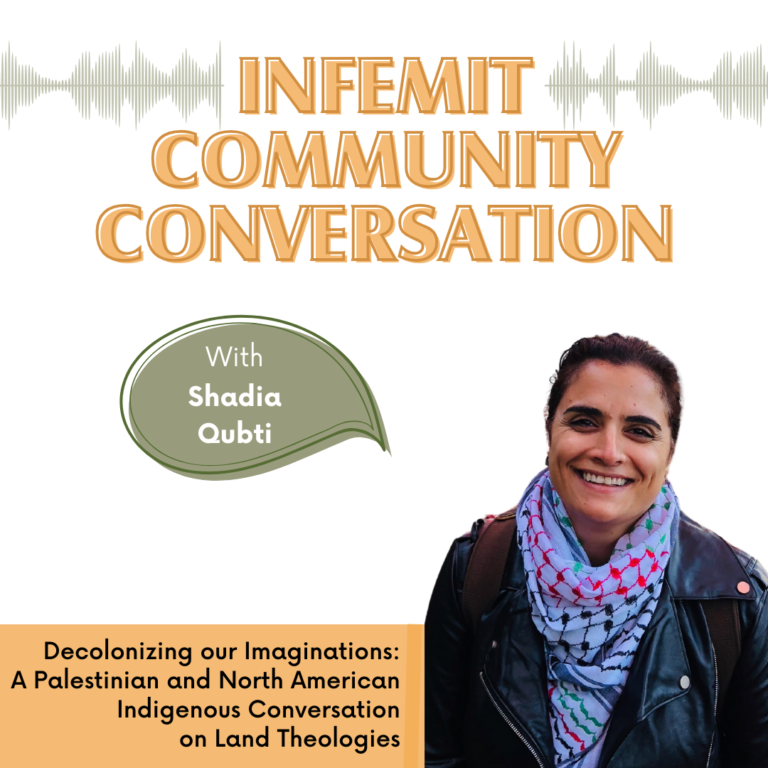
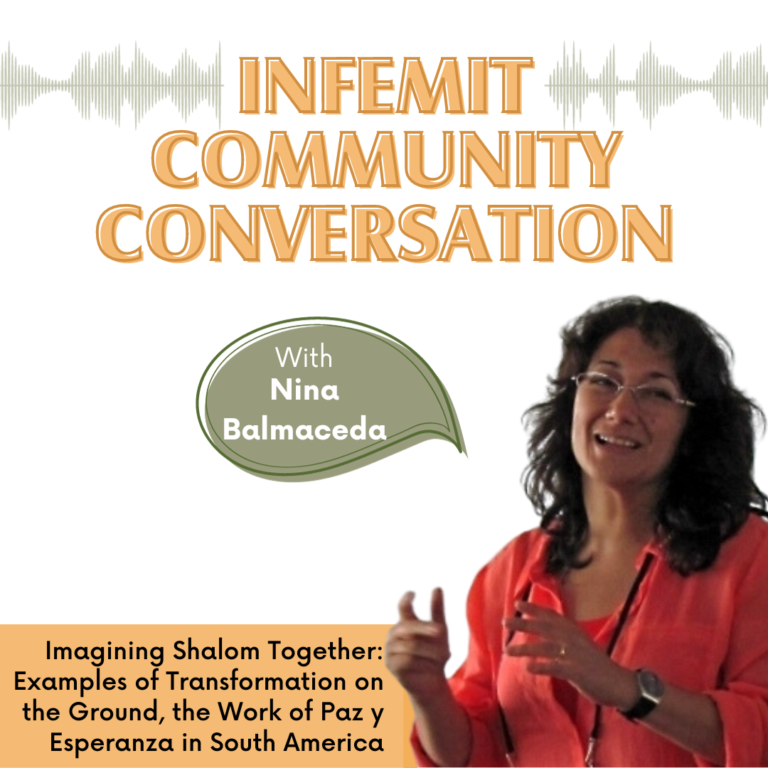
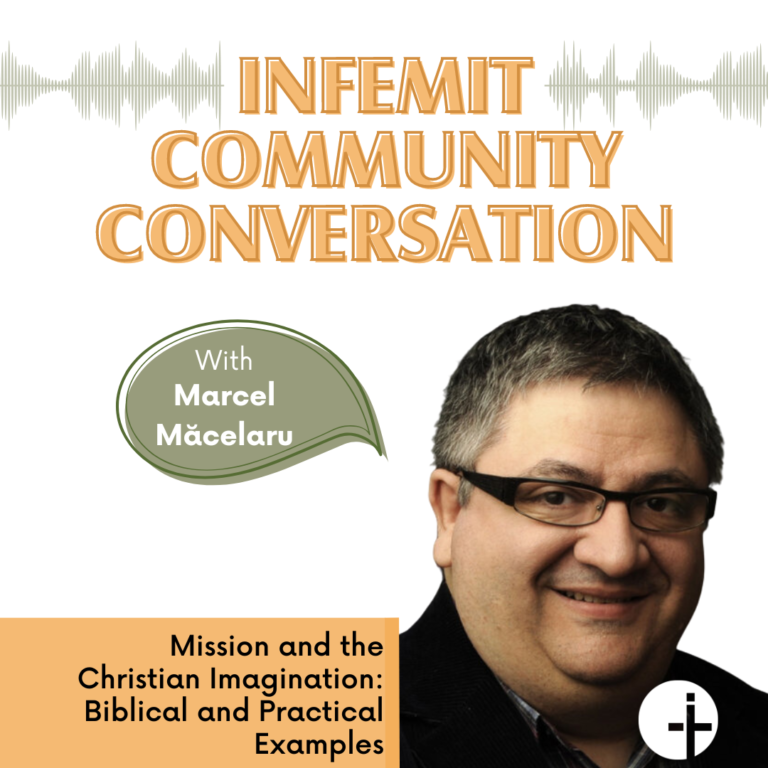
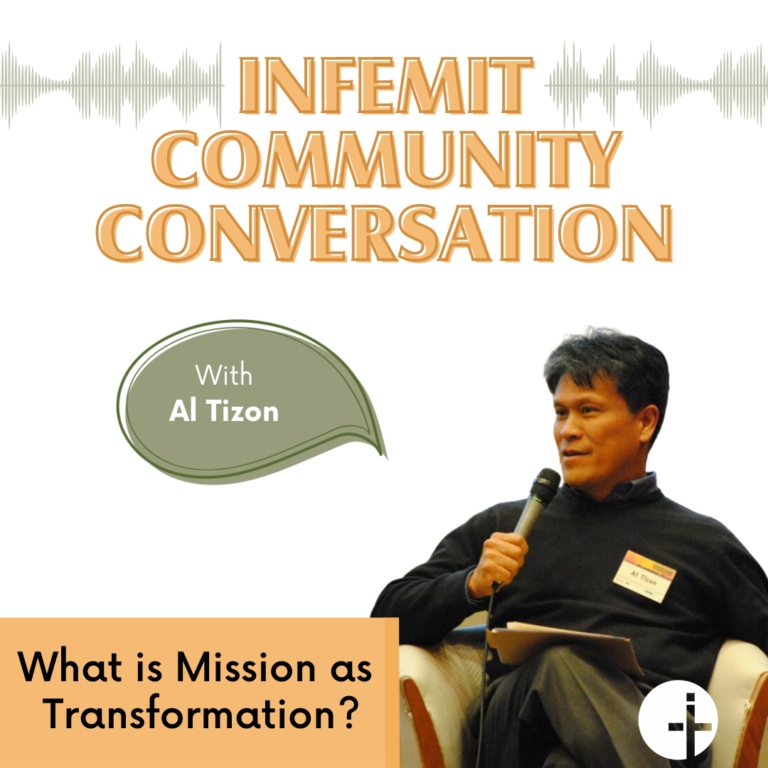
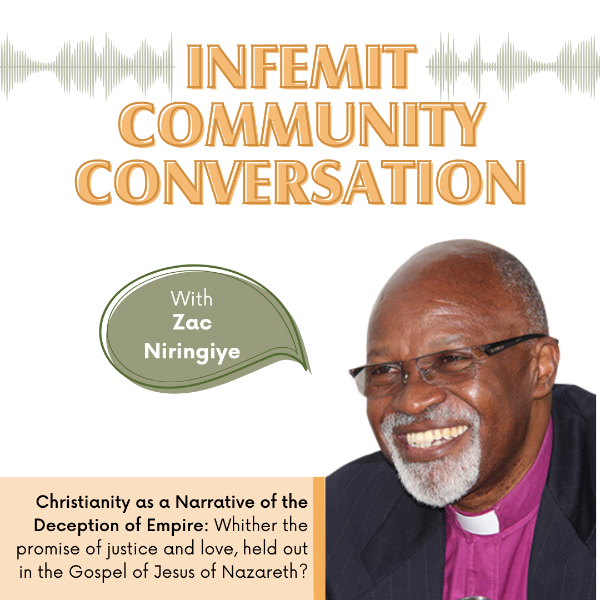
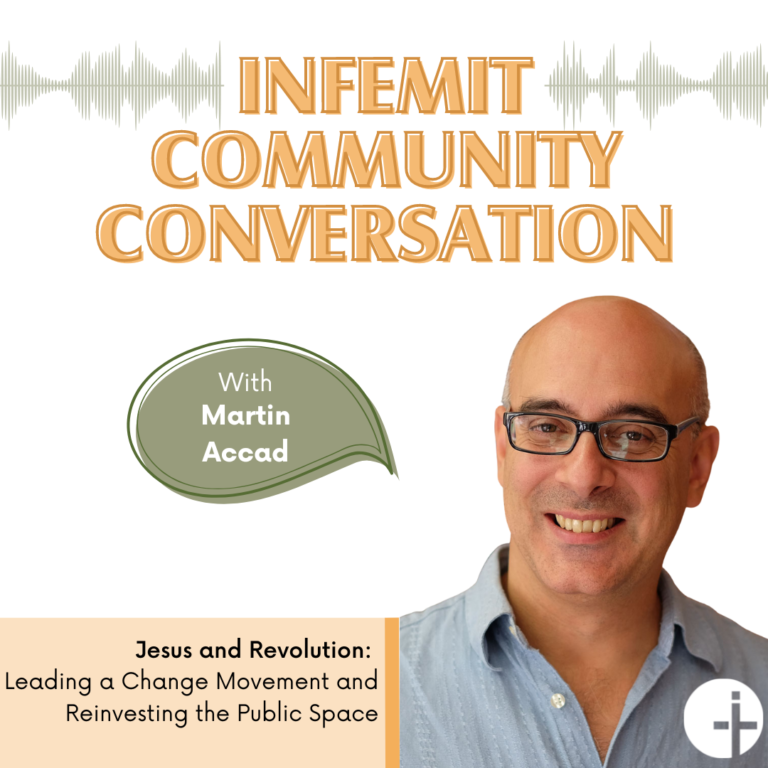
Leave a Reply